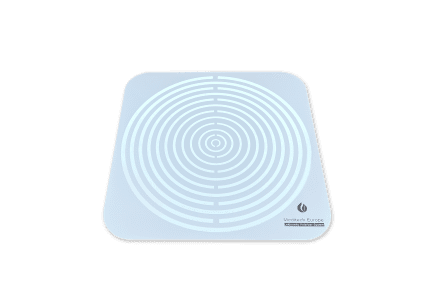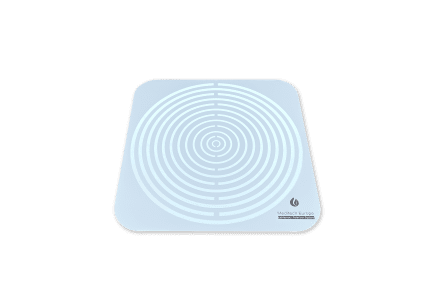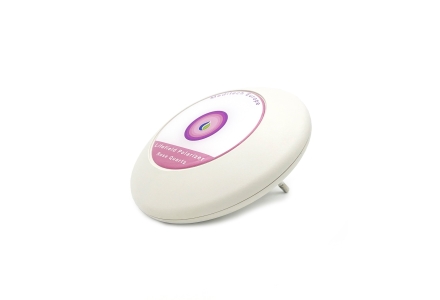
In the modern world, sleep often seems to lose out in the battle for precious time. We live in an age where busy schedules, technology and stress sometimes get in the way of us getting a good night's sleep. But what we often forget is that sleep is one of the most essential aspects of our lives. It is not only a necessary biological function, but also a crucial factor for our physical and mental health. In this comprehensive blog article, we will explore the importance of sleep, what happens during our sleep, its psychological impact, tips for better sleep quality, the role of sleep in our physical health and how good sleep affects our daily performance. Let's dive into the world of sleep and discover why it is so crucial to our well-being.
The Essence of Sleep
Sleep is a biological need shared by all living things, from humans to animals. It is a natural process that our bodies and minds need to recover and regenerate after an activity-filled day. During sleep, we undergo several sleep cycles consisting of different stages, including light sleep, deep sleep and REM (Rapid Eye Movement) sleep. These cycles are crucial for repairing our bodies and consolidating memories.
Sleep is also important for our biological clock, which regulates our circadian rhythms. This internal rhythm plays a role in regulating our sleep-wake pattern and hormonal balance. A lack of sleep can disrupt these rhythms, leading to problems such as insomnia, fatigue and mood swings.
What Happens While We Sleep?
During the different sleep stages, we undergo different physiological processes. In the deep sleep phase, for example, tissue repair and muscle growth are stimulated, while our immune system is strengthened. In the REM sleep phase, our brain becomes active, which is essential for processing emotions and consolidating memories.
In addition, during sleep, the hormone melatonin is produced, which regulates our sleep-wake cycle. This explains why we become sleepy at night and awake during the day. Lack of sleep can lead to disturbed melatonin production and disruption of our day-night rhythm.
Sleep and Emotional Wellbeing: The Psychological Impact
A good night's sleep is vital for our emotional health. During sleep, emotions are processed and regulated, allowing us to reduce stress and anxiety. A lack of sleep can lead to irritability, anxiety and depression.
Moreover, sleep affects our brain's cognitive functions, such as concentration and decision-making. It is difficult to maintain emotional stability when we are tired and unable to think clearly.
Tips for Better Sleep Quality
Now that we understand how important sleep is to our overall health, let's share some tips to improve the quality of your sleep:
- Keep a Regular Sleep Schedule: Try to go to bed and get up at the same time every day, even on weekends. This will help your body maintain a consistent sleep-wake pattern.
- Create a Comfortable Sleep Environment: Provide a comfortable mattress and pillows, avoid too much light and noise, and make sure your bedroom is cool and well ventilated.
- Limit Screen Use Before Sleep: The blue light from smartphones and computers can interfere with melatonin production. Try to schedule screen-free time at least an hour before bedtime.
- Avoid Caffeine and Alcohol Before Sleep: Both substances can disrupt your sleep. Try to avoid them in the hours before bedtime.
- Do Relaxation Exercises: Meditation, breathing exercises and progressive muscle relaxation can help reduce stress and calm your mind before bed.
- Exercise Regularly: Regular exercise can improve sleep quality, but try to avoid intense workouts at least 3 hours before bedtime.
- Find the right products: There are products and resources that can help you fall asleep faster or better. There are also aids that can help you relax better. And there are also products that you wouldn't expect to be able to help you.... Find what is the best combination for you!
The Role of Sleep in Physical Health
Sleep also has a profound impact on our physical health. It plays a crucial role in regulating hormones that affect appetite and weight. A chronic lack of sleep can lead to weight gain and obesity.
In addition, sleep has a direct impact on the cardiovascular system. Lack of sleep can lead to high blood pressure and increased risk of heart disease. It has also been linked to an increased risk of type 2 diabetes.
How Good Sleep Affects Your Daily Performance
Sleep has a significant impact on our daily performance, whether we are at work, studying or just going about our daily activities. A good night's sleep improves concentration, attention and memory. This can lead to better productivity and decision-making.
On the other hand, lack of sleep can lead to daytime sleepiness, reduced alertness and increased risk of accidents, both on the road and in the workplace. Clearly, sleep affects how we function in everyday life.
FAQ
Now let's answer some frequently asked questions about sleep:
How Many Hours of Sleep Do I Need Every Night?
The optimal amount of sleep can vary depending on age and individual needs. Generally, it is recommended that adults get 7-9 hours of sleep per night. However, some people feel best with slightly more or slightly less sleep.
What Are The Signs Of Sleep Deprivation?
Signs of sleep deprivation can include fatigue, irritability, difficulty concentrating, memory problems, decreased alertness and daytime sleepiness.
Can I make up for 'lost' sleep over the weekend?
While it can be tempting to catch up on extra sleep over the weekend, it is not always the best solution. Long periods of sleep deprivation cannot be fully compensated for in a single night. It is better to maintain a regular sleep schedule to minimise the negative effects of sleep deprivation.
Final thought
In our hectic lifestyles, sleep can easily be overlooked, but its importance should not be underestimated. Sleep is essential for our physical and mental health, emotional well-being and daily performance. It is the basis for a healthy and productive life.
At Meditech Europe, we understand how important sleep is to your overall well-being. We are dedicated to helping people develop better sleep habits and offer high-quality sleep products and advice. If you have any questions or would like more information, please contact us at info@meditecheurope.nl or call us on +31527 292 331. We are ready to support you on your journey to better sleep. Sleep well!









